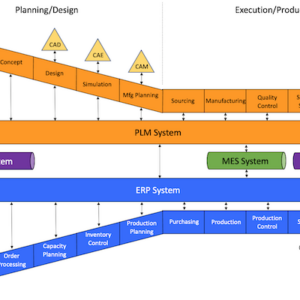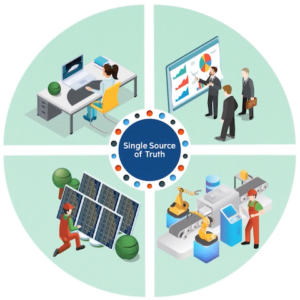Product Lifecycle Management (PLM) is an important part of product development and management in any organization. It involves managing all the data, processes, and activities related to the product throughout its life cycle, from ideation to end of life. As a result, it’s critical to identify the right person, team or department to own PLM READ MORE
Practical Applications of AI in Product Development and Manufacturing – Are we there yet?
Since ChatGPT thrust artificial intelligence (AI) into the public domain and greater awareness a few months ago, there have been many discussions about the practical applications of AI and the impact on jobs and businesses. I mean it’s fun to throw questions at ChatGPT and marvel at the quality of the answers, but playing with READ MORE
A Better Approach to User Training
In many PLM implementations and upgrades user training is an afterthought for the system integrator or implementation firm. Their focus is primarily on properly designing and configuring the system so that it meets the customer’s requirements. Plenty of attention is given to the implementation methodology and whether it should be Agile or Waterfall, to the READ MORE
Do We Need Both ERP and PLM? Why?
I often hear non-engineers asking this question: We already have ERP, why do we need PLM? And even engineers sometimes ask why it is not enough to manage engineering and CAD data in a PDM system. The answer is, most manufacturing companies need both ERP and PLM. The main reason is that each of these READ MORE
An Integrated Approach to Configuration Management
By Andreas Lindenthal and Henrik Hulgaard When we talk about product configuration we need to distinguish between engineering configuration and sales configuration. Generally engineering defines all the variants, options, alternates and rules that are technically possible. This is often done in a PLM system during the development of the product. Sales or product management then READ MORE





